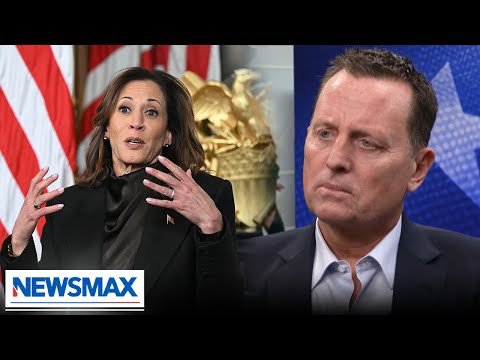In a nail-biting spectacle that had political junkies on the edge of their seats, the Senate confirmed Kash Patel as the new director of the FBI. The final vote was a tight 51 to 49, highlighting a divided chamber. Patel is no stranger to the political landscape; he’s a buddy of former President Donald Trump, which makes this appointment a significant one. Now, with Patel at the helm of the FBI, many are curious about what his leadership will mean for the agency and for law enforcement across the nation.
Ric Grenell, the Presidential Envoy for Special Missions, couldn’t hold back his enthusiasm, teasing that Patel is destined to become “popular,” a cheeky nod to the Broadway hit “Wicked.” As the dust settled from the vote, Grenell shared his excitement about Patel’s dedication to law enforcement and fighting crime. He emphasized that Patel is not just a “seat warmer.” Instead, Grenell sees him as a dynamic force ready to shake things up and regain the trust of the American people in the FBI.
Patel’s background is worth noting; he’s served as a prosecutor and a public defender, showing that he has experience in both sides of the legal system. Grenell praised Patel’s empathetic nature, saying he truly cares about people. In the world of law enforcement, having a tough yet compassionate leader like Patel could mean a shift away from the bureaucratic red tape that has caused frustrations in the past. Grenell believes that Patel will focus on empowering agents to do their jobs efficiently and prioritize fighting crime over unnecessary administrative duties.
The appointment raises bigger questions about the future of federal investigations. With talk swirling about potential investigations into political figures like Adam Schiff, some wonder if Patel will focus on reforming the FBI’s approach to politically-sensitive cases. Grenell expressed a clear message: if individuals haven’t committed a crime, they should have nothing to fear. This context underscores a broader vision to eliminate what Grenell refers to as “political prosecutions,” indicating that Patel’s administration may steer away from politically charged motives in law enforcement.
In related news, Grenell, who has taken charge of the Kennedy Center, shared concerns about its financial health. Under previous leadership, the center has struggled financially, prompting Grenell to make bold changes from day one. He’s hopeful about revitalizing the center and ensuring it serves a diverse audience, including voices from across the political spectrum. It’s clear that Grenell is not only concerned about the arts but is also laying down the groundwork for a cultural shift that embraces various viewpoints—something he feels has been lacking.
As America watches closely, Patel’s installation as FBI director is seen as a potential turning point. His leadership could resonate well with those looking for accountability and reform in government agencies. While there’s speculation about how he will tackle the big issues ahead, one thing is certain: Kash Patel is set to bring a fresh approach to an agency that has been under fire. Whether he succeeds in restoring public confidence remains to be seen, but the stage is set for a powerful figure to lead the charge against crime.



